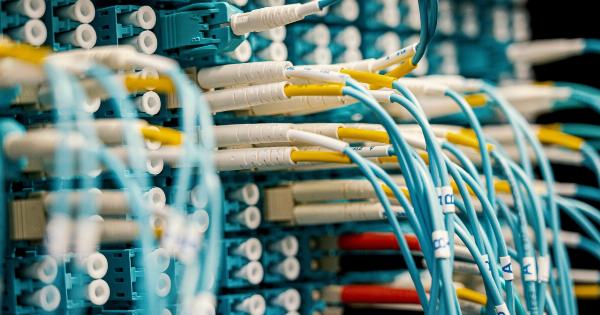Diabetes has become a major health concern worldwide, affecting millions of people.
It is a chronic condition that occurs when the body is unable to properly regulate blood sugar levels due to either insufficient production or ineffective use of insulin. While diabetes primarily affects blood sugar control, it can also lead to various complications, one of which is kidney damage.
What is Kidney Damage?
Kidney damage, also known as diabetic nephropathy, is a progressive condition that occurs as a result of long-term diabetes. It happens when high blood sugar levels, along with other factors, cause damage to the kidneys’ filtering systems.
Symptoms of Kidney Damage
Kidney damage in diabetes often develops slowly over a period of years. In the early stages, there may be no noticeable symptoms. However, as the condition progresses, the following symptoms may begin to manifest:.
1. Increased Urination
Individuals with kidney damage may experience increased frequency and urgency of urination. This occurs due to the kidneys’ reduced ability to filter waste products and excess fluids effectively.
2. Swelling
Swelling, particularly in the legs, ankles, and feet, is a common symptom of kidney damage. This swelling, also known as edema, occurs due to the retention of fluids in the body as a result of impaired kidney function.
3. Fatigue and Weakness
As the kidneys become damaged, they may produce less erythropoietin, a hormone responsible for stimulating the production of red blood cells. This can lead to anemia, resulting in fatigue and weakness.
4. High Blood Pressure
Kidney damage can cause high blood pressure or worsen pre-existing hypertension. The kidneys play a crucial role in regulating blood pressure, and their impaired function can disrupt this balance.
5. Protein in Urine
A common sign of kidney damage is the presence of protein in the urine. Normally, the kidneys filter waste products, including excess protein, out of the bloodstream. However, when the filtering units are damaged, protein may leak into the urine.
Causes of Kidney Damage in Diabetes
Diabetic kidney damage primarily occurs due to prolonged and poorly controlled diabetes. The exact cause is not fully understood, but several contributing factors have been identified:.
1. High Blood Sugar Levels
Persistent high blood sugar levels, a hallmark of diabetes, can damage blood vessels and small filtering units within the kidneys. Over time, this damage impairs the kidneys’ ability to effectively filter waste products.
2. High Blood Pressure
Uncontrolled high blood pressure can further exacerbate kidney damage in those with diabetes. When blood pressure is consistently elevated, the blood vessels in the kidneys may become damaged, reducing their efficiency.
3. Genetics
Some individuals may have a genetic predisposition to developing kidney damage in the presence of diabetes. Certain gene variations can make individuals more susceptible to the harmful effects of high blood sugar.
4. Smoking
Smoking not only increases the risk of developing diabetes but also worsens its complications. It promotes inflammation and reduces blood flow to the kidneys, compounding the risk of kidney damage.
Treatment of Kidney Damage
Managing kidney damage in diabetes involves addressing both diabetes control and supporting kidney function. Treatment options may include:.
1. Blood Sugar Control
Maintaining optimal blood sugar levels through diet, physical activity, and medications is essential for preventing and managing kidney damage. This helps reduce the stress placed on the kidneys and minimizes the risk of further deterioration.
2. Blood Pressure Management
Controlling blood pressure is crucial in preserving kidney health. Medications, lifestyle modifications, and regular monitoring can help maintain blood pressure within a healthy range.
3. Medications
In certain cases, medications specifically targeting kidney damage may be prescribed, such as angiotensin-converting enzyme (ACE) inhibitors or angiotensin receptor blockers (ARBs). These medications help lower blood pressure and protect the kidneys.
4. Dialysis and Kidney Transplant
In severe cases of kidney damage where kidney function significantly declines, dialysis or kidney transplant may be necessary. Dialysis involves using a machine to filter the blood, compensating for reduced kidney function.
A kidney transplant may be considered as a long-term solution.
Lifestyle Changes
In addition to medical interventions, making certain lifestyle changes can have a positive impact on kidney health:.
1. Follow a Healthy Diet
Aim to consume a well-balanced diet rich in fruits, vegetables, whole grains, lean proteins, and healthy fats. Limiting salt, processed foods, and sugary beverages can help manage blood pressure and blood sugar levels.
2. Regular Exercise
Engaging in regular physical activity not only improves overall health but also helps control blood sugar and blood pressure. Aim for at least 150 minutes of moderate-intensity exercise per week.
3. Stop Smoking
Quitting smoking reduces the risk of kidney damage and its complications. Seek support from healthcare professionals to develop a personalized smoking cessation plan.
Conclusion
Diabetes-related kidney damage is a serious complication that requires ongoing management. Recognizing the symptoms, understanding the causes, and seeking appropriate treatment are essential for preserving kidney function.
By effectively controlling blood sugar levels, managing blood pressure, and adopting a healthy lifestyle, individuals with diabetes can mitigate the risk of kidney damage and lead a fulfilling life.































